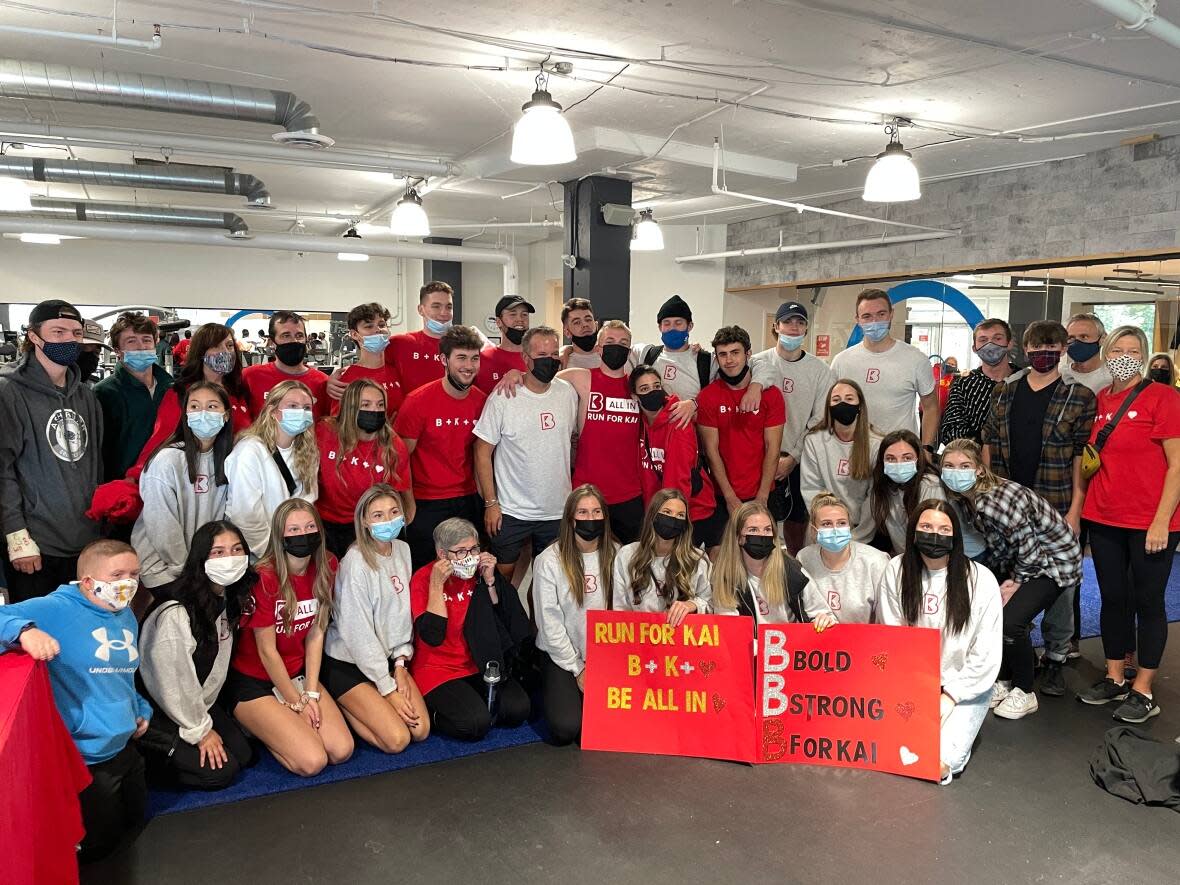Suspected N.S. meningitis death hits home for organizers of awareness campaign

A new meningitis awareness campaign for university students was launched across Canada just weeks before a university student in Halifax is suspected to have died from the illness last weekend.
MenBAware aims to educate university students on the dangers of meningococcal meningitis and how they can protect themselves.
The initiative is in support of the BforKai organization, created by friends and family of Kai Matthews, a 19-year-old Acadia University student who died of meningitis in June 2021.
Alex Ryan was Kai's best friend, and is now the co-director of the organization. He says the loss he experienced drives him to do this work.
"Him and I met when we were 12 or 13," Ryan said. "So after the situation unfolded just over a year ago now, Kai's family had started the initiative of BforKai, and what was just a little seed at the time has grown to be quite an organization."

Ryan said BforKai started as a local initiative in Nova Scotia, but its new program is an expansion across other provinces through university sporting events and pop-ups on campuses.
Post-secondary students can be vulnerable to meningitis B since it is spread through activities like kissing or sharing food, drinks, toothbrushes, utensils or smoking devices.
Ryan said most of these young adults are not protected against the illness, since meningitis B vaccines are not covered by provincial immunization programs for the general public.
The campaign encourages students to speak to their health-care providers about the protection available for meningitis B.

When Kai was sick with what turned out to be meningitis, he was discharged from the hospital in Halifax twice.
Ryan said part of the campaign is to teach young people how to recognize the signs, which include fever, stiff neck, rash, sensitivity to light and changes in alertness, and advocate for themselves.
"When we're having these conversations there is a huge gap of knowledge for what meningitis is and the causes of it, the symptoms of it, the tragicness of it, all of the main components that should be known."
Death under investigation
The province's health authority said in a news release Wednesday the person attended Saint Mary's University and died in hospital over the weekend.
Public health is now investigating the death to confirm whether the person had meningitis, and if so, which type.
Dr. Jesse Kancir, the eastern zone's regional medical officer of health, would not reveal any details about the student, but said all of their close contacts have been notified.
Those contacts are now on antibiotics as a precaution. If a type of meningitis is confirmed, they will also receive the vaccine for that strain. Kancir said he believes there is no risk to the public at this time.
Ryan said his heart goes out to the family and friends of the individual.
"It's extremely tragic," he said. "It's a horrible situation and it just goes to show how important it is to take action [to] be protected and learn more about the illness."
Vaccine strategy
Kancir said in Nova Scotia, 12-month old children are vaccinated for meningococcal C, and receive school-based vaccinations for meningococcal A, C, Y and W in Grade 7.
There is no publicly funded program for meningitis B in the province, unless a person is a close contact or is deemed high-risk.
Kancir said the province follows the vaccine recommendations from the National Advisory Committee on Immunizations.
"The question of why we would offer A, C, Y, and W vaccines as part of school-based vaccinations, and not the B vaccine, is that the epidemiology is so different," he said. "So those vaccines we know tend to increase as people age, whereas it's a bit different for that B [vaccine]."
"There's uncertainty about whether the vaccine actually decreases the amount of meningococcal B in your nasal passages and so whether you're actually stopping people from becoming carriers of this."
If an individual wants to get this type of vaccine, they have to pay $300 out-of-pocket. This has driven Kai's family and the BforKai organization to raise funds to cover the cost for students who want to receive it.
"I think having it in the health-care system and it being provided and being funded, in my opinion, there's no harm in that," Ryan said. "I think it's pretty promising, even if there's a chance that it can protect someone."
MORE TOP STORIES


